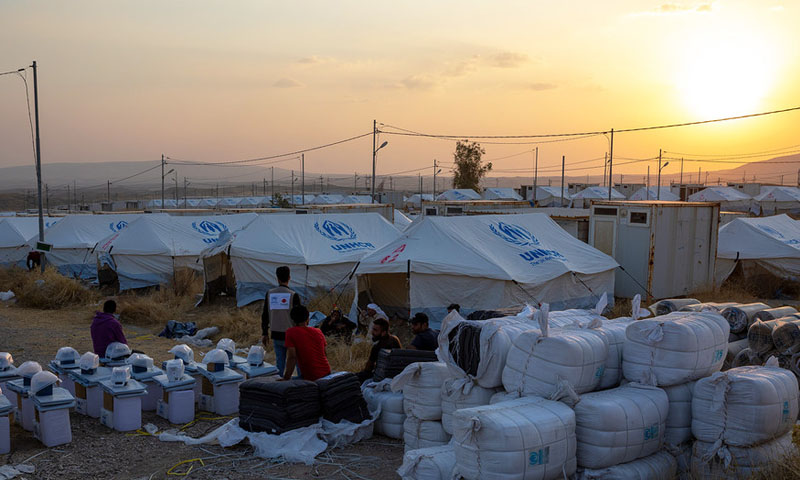Human rights organizations have warned of record levels of food insecurity among Syrians at home, amid declining purchasing power for basic foodstuffs, including bread. In northwestern Syria, hundreds of thousands of Syrians are trying to reduce their daily meals and food intake, in order to pay for basic essentials, the Syria Response Coordinators team said in a statement on Wednesday.
The statement added that the Response Coordinators team had documented more than 498 camps in the region with about 468,913 people, who depend on the direct purchase of bread, amid the apparent absence of organizations for securing this basic need. This great hardship stems from a significant rise in food prices, especially bread, which has recently undergone a 300 percent price hike. As a result, some Syrians are reducing their meals to only “essentials”.
The team said that previous developments are “a new step towards the abyss, exposing increasing funding gaps for the humanitarian response in Syria.”
The Response Coordinators’ statement coincided with a report issued by the United Nations World Food Programme (WFP) on Tuesday. The WFP statement revealed that the number of people on the brink of famine has risen globally to 45 million, 12.4 million of whom are Syrians.
“Some 12.4 million people in Syria do not know where they will get their next meal – a level of food insecurity that exceeds any time during the decade-long conflict,” the report said.
WFP attributed this development to the Syrian pound’s devaluation, the loss of jobs, the impact of Lebanon’s financial crisis, the spread of the COVID-19 pandemic, as well as conflicts and displacements.
Read Also: Syrian Economy Towards Greater Recession After Electricity Price Hike
The WFP statement said that WFP’s funding in Syria has dropped to just 31 percent. The organization urgently needs nearly 700 million USD by February 2022 to continue supporting some 5.8 million people who depend on WFP’s food assistance to survive.
All regions of Syria are experiencing “unprecedented” living condition crises, owing to high prices for basic items, particularly food and fuel, and the frequent difficulty of providing them.
Last September, WFP announced a reduction in the amount of food contained in the standard humanitarian aid basket in northwestern Syria, starting from last October.
A WFP statement said that the reduction was designed to increase the number of targeted beneficiaries in northwestern Syria and cover more humanitarian needs, given the limited resources available.
The food basket reduction is estimated at approximately 309 calories per basket — WFP’s third consecutive reduction.
This article was translated and edited by The Syrian Observer. The Syrian Observer has not verified the content of this story. Responsibility for the information and views set out in this article lies entirely with the author.


